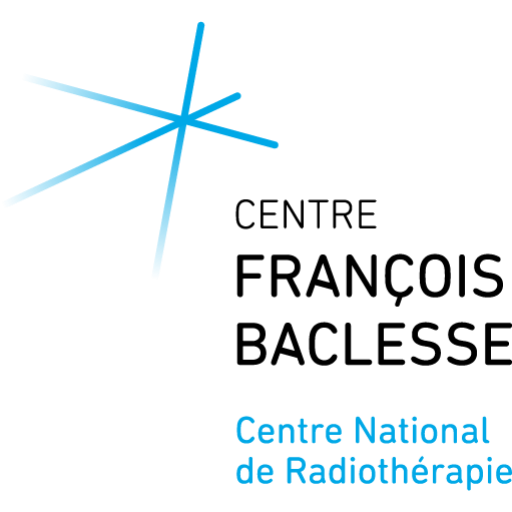Cancer de l’œsophage


Cancers de l’œsophage
General information
There are two main types of esophageal cancer: squamous cell carcinomas (the most common) and adenocarcinomas.
Esophageal cancer is associated with several risk factors, such as smoking, alcohol (or a combination of both), obesity, gastroesophageal reflux, and drinking very hot beverages.
Esophageal cancer can develop in any part of this organ and most often starts in the cells of the lining. When cancer develops, the cancer cells are initially few in number and confined to the lining. Over time, and if left untreated, the cancer cells can spread to other layers of the esophageal wall.
Clinical signs
The most common symptoms are: a gradual blockage of food, starting with solid foods and then liquids, a deterioration in general health (loss of appetite, fatigue, weight loss) or the onset of regurgitation, hiccups, and foul-smelling breath.
Treatment of esophageal cancer at the CFB
Dans les cancers de l’œsophage localisés ou certains cancers localement avancés, un traitement de radiothérapie associé à de la chimiothérapie pourra être indiqué par votre médecin radiothérapeute.
External radiotherapy
This treatment uses X-rays directed through the skin to the area to be treated. These rays are produced by a linear accelerator and gradually destroy the cancer cells.
Your treatment will begin with a scanning session (called virtual simulation) to identify the areas to be treated (target volumes) and the healthy organs around them that must be preserved as much as possible.
Your treatment plan will be tailored to your individual needs (taking into account your specific characteristics and those of your disease) and scheduled over several weeks. Sessions take place from Monday to Friday and last approximately 15 minutes.
The radiation is invisible and painless and does not make you radioactive.
Chemotherapy in combination with radiotherapy
Chemotherapy is a treatment based on drugs that act on the mechanisms of cell division.
It is a general treatment (called systemic treatment) that acts throughout the body. This allows cancer cells to be reached regardless of their location in the body, even if they are isolated and cannot be detected by diagnostic tests.
Chemotherapy drugs are administered by infusion. At Centre François Baclesse, chemotherapy is administered concurrently with radiotherapy to sensitize the cells and enhance the action of the radiation on the areas being treated.
Side effects during treatment
During radiotherapy
- Esophagitis: Radiotherapy can cause inflammation of the lining of the esophagus, which manifests as pain accompanied by discomfort or a feeling of blockage when swallowing.
- Malnutrition: Radiation to the esophagus can cause inflammation. This can cause pain when swallowing and therefore difficulty eating.
- Fatigue: Fatigue is a common side effect but is not exclusively due to treatment.
During chemotherapy
- Nausea and vomiting: Nausea is common. If vomiting occurs, it is advisable to rinse your mouth with cold water and wait 1 to 2 hours before eating.
- Change in taste and/or loss of appetite: A change or loss of taste may occur during chemotherapy, which can lead to a loss of appetite. This is one of the side effects of cisplatin, for example. In general, it disappears gradually after the end of treatment, but cannot be avoided during treatment.
- Fatigue : Apart from the fatigue caused by the disease itself, anxiety about tests or daily travel, fatigue may be related to chemotherapy. It depends on your tolerance to this treatment and any side effects.
Side effects after treatment
They may be related to the treatments you received. We encourage you to report any side effects, even late ones, to your radiation oncologist.
The following side effects may occur:
- Fatigue and memory problems
- Hearing loss and tinnitus
- Persistent taste disorders
- Stenosis: A narrowing of the esophagus (stenosis) may occur after radiation therapy. Stenosis can cause dysphagia (difficulty swallowing), leading to discomfort and/or pain when swallowing.
- Mycotic esophagitis: Radiotherapy and a weakened general condition can promote a fungal infection of the esophagus. This side effet can easily be treated with antifungal medication.
It is important to report these symptoms to your healthcare team so that they can be treated. To reduce the symptoms of dysphagia, dilation of the esophagus or the insertion of an esophageal prosthesis may be necessary.
Some late side effects are specifically related to radiation therapy. This is the case for certain cardiac or pulmonary complications.
- Cardiac complications: Cardiac complications may occur in the long term. These may include inflammation of the pericardium, known as pericarditis, which causes chest pain. These complications require specialist care.
- Pulmonary complications: In the long term (after six months), radiotherapy combined with chemotherapy can lead to respiratory failure, which can result in loss of lung function. The onset of this type of complication requires specialized care.
